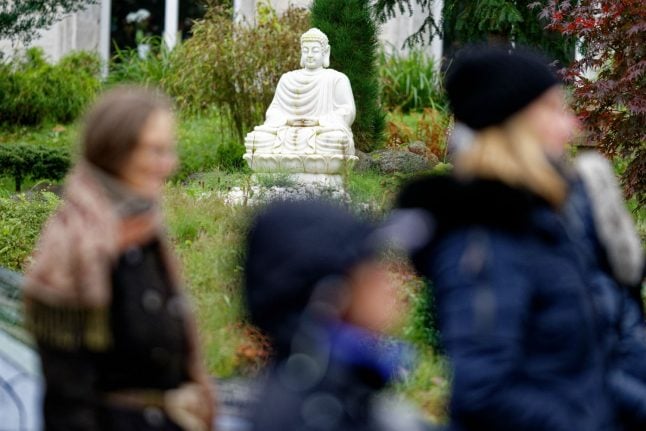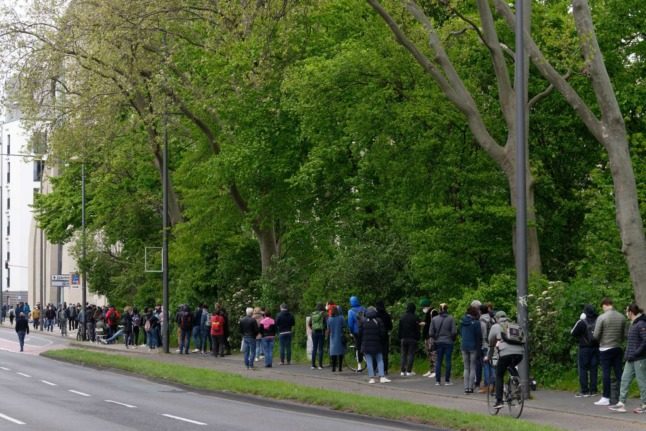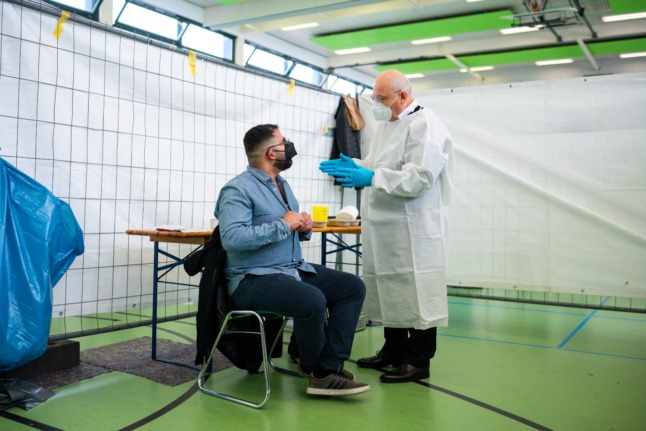They own almost nothing but have, nevertheless, a lot to give. It begins well before sunrise. The Buddhist monk Thay Phap An and nun Song Nghiem perform fluid Tai-Chi movements.
Shaved heads, in brown robes. Smiling. Behind them an illuminated Buddha statue. In front of them fifty men and women, for whom days of meditation and respite are beginning.
“We bend down low and breathe out,” repeats Vietnamese nun Song Nghiem patiently. “And smile,” reminds Thay Phap An in a gentle voice.
This is not Ho Chi Min City or Bangkok. Rather it is the North Rhine-Westphalian city of Waldbröl, about an hour’s drive from Cologne.
Buddhist in the Bundesrepublik
There are many Buddhists in Berlin, Munich, Hamburg, Freiburg, Cologne-Bonn and in the Ruhr area. For Monk Thay Phap An the most important thing is that “people gain clarity here. They leave us more carefree, with a change in their hearts. To see that is very moving.”
The Vietnamese have made a place for slowing down and tranquility in the little city in the upper Berg region of North Rhine-Westphalia. An oasis. People come from all over Europe to draw strength.
The 40-strong Buddhist community lives modestly: everyone has only a table, bed, chair and few personal belongings; no TV or computer. They eat vegan, even from their own vegetable garden.
Thay Phap An is a charismatic person. The fifty participants in the four-day course “Way out of fear” in November have come from Belgium or the Netherlands. As soon as he speaks, total silence falls.
“The essence is the teaching of mindfulness,” explains the monk.
Eloquently, relaxed, he speaks about Buddha, transience, the fear of death, a conscious life in the here and now – interspersing scientific and psychological aspects.
“Whatever life gives us, it’s a blessing.”

Thay Phap An with nuns Hoang Nghiem and Song Nghiem in the entrance hall of the monastery. Photo: DPA
You can feel that Thay Phap An is a learned man with an eventful past. Someone who has delivered his message many times in many countries around the world.
He is director and course manager of the European Institute of Applied Buddhism (EIAB) – a somewhat cumbersome name for the serene Buddhist community of Waldbröl, a small forested town of just over 19,500 inhabitants
As a teenager, Thay was one of the thousands of people to flee his country before the Vietnam War via boat. He lived in a camp in Malaysia and was later able to study in the US, obtaining a degree in mathematics before becoming a monk in France.
At his side, teaches Song Nghiem, barely taller than 1.5 meters, but contagiously happy. When singing together, she gets her words mixed up.
“Now I’m going to lose my license as a singer,” she jokes. When she is asked to pose for a photo, the 66-year-old runs her hand over her bald head, saying mischievously: “As nuns and monks, we pay no attention to our outer beauty, but to our inner self.”
Song Nghiem came to Darmstadt to study, she holds a degree in Chemistry and worked for a long time in science and business. She lost almost her entire extended family during their escape before the Vietnam War. She believes in “the goodness of the people.”
The nun was also educated in the French “Plum Village”, founded by internationally renowned Zen master Thich Nhat Hanh, 93. He started the EIAB a good ten years ago in Waldbröl – 60 kilometers from Cologne.
Here, living amongst the Buddhists, is a German nurse, Bi Nghiem, 72.
Doesn’t she occasionally miss a glass of wine, or watching TV? “That is the last thing I need”, she laughs.
But she does embrace small luxuries: “When I am travelling, I read a newspaper to know what is going on in the world.”

A huge bell hangs in the monastery garden. Photo: DPA
A total transformation
As the first Buddhists came to Waldbröl, they initially had to do without heating and running water in the previously unoccupied buildings. The monumental building was once used as a care home for the mentally ill.
The Nazis expelled all 600 patients at the end of the 1930s and planned a pompous hotel, which never went into operation. Since then, thousands of visitors from 35 countries have come knocking.
“We want to help make society calmer, more peaceful, more compassionate and loving,” says Thay Phap An. “There is a vacuum in people’s spiritual lives.” Many sought balance, harmony, more happiness, and inner peace.
The recipe in Waldbröl: Meditation, also through silent group walks, deep relaxation. Meals are taken in silence. Some participants later talk of panic attacks, fear of failure, psychiatry, depressions. Their tears flow.
Many say that they feel well cared for by the monks, collect themselves and finally “come down”.
Song Nghiem assures: “We do not differentiate between you and me. We share everything, including our suffering.”
Respect, compassion and appreciation are most important – things which many are missing in their daily lives. There are courses for mourners or courses for reducing stress.
Some just stop by when a huge bell strikes outside and peace is prayed for. We do not proselytize, says Thay Phap An.
Followers of all religions are welcome, he adds.
Translated by Sarah Magill.





 Please whitelist us to continue reading.
Please whitelist us to continue reading.
Member comments